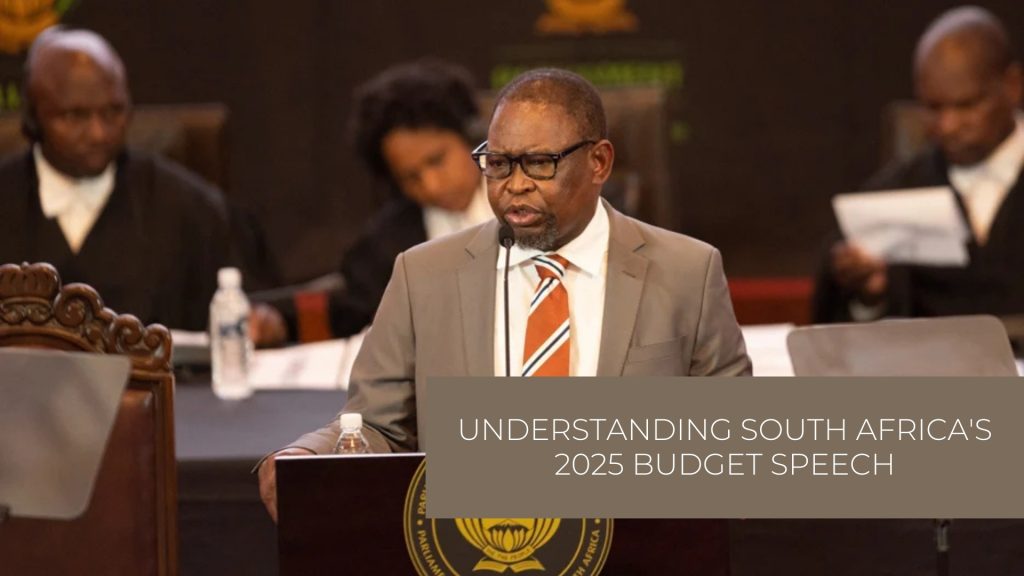
On March 12, 2025, Finance Minister Enoch Godongwana delivered South Africa’s National Budget Speech, outlining the government’s fiscal policies and priorities for the upcoming financial year. This budget comes at a pivotal time, addressing economic challenges and setting the course for the nation’s financial future.
Key Highlights of the 2025 Budget:
- Value-Added Tax (VAT) Adjustment:
- The government proposed a 0.5% increase in VAT, raising it from 15% to 15.5% effective May 1, 2025. An additional 0.5% hike is planned for 2026, which will bring the VAT rate to 16%. This phased approach aims to balance revenue generation with economic growth considerations.
- Increased Allocations for Health and Defense:
- Health: An additional R28.9 billion has been allocated to the health sector to address critical needs, including supporting the country’s substantial HIV-positive population and ensuring the employment of medical personnel and newly qualified doctors. Health spending is projected to rise from R277 billion in 2024/25 to R329 billion by 2027/28.
- Defence: The budget allocates R5 billion to strengthen military forces, particularly in response to escalating conflicts in eastern Congo.
- Fiscal Consolidation Efforts:
- The budget emphasizes controlling national debt and achieving fiscal consolidation. However, Fitch Ratings has expressed concerns about the feasibility of stabilizing debt as projected, suggesting that the debt-to-GDP ratio may continue to rise, reaching 78.8% in FY25 and increasing further in FY26.
- Parliamentary Approval and Political Dynamics:
- The budget has faced opposition from major parliamentary parties, leading to delays and ongoing negotiations. The African National Congress (ANC) requires support from other parties to pass the budget, highlighting the complexities within the coalition government.
Implications for Businesses and Citizens:
- VAT Increase: The phased VAT increase will directly impact consumers and businesses. While it aims to boost government revenue, businesses may need to adjust pricing strategies, and consumers could experience a slight increase in the cost of goods and services.
- Enhanced Public Services: Increased funding for health services is expected to improve public healthcare delivery, benefiting citizens and potentially reducing long-term healthcare costs.
- Economic Outlook: Efforts toward fiscal consolidation are crucial for economic stability. However, concerns about rising debt levels may affect investor confidence and the country’s credit rating, influencing borrowing costs and economic growth.
Conclusion:
The 2025 Budget reflects the government’s attempt to balance immediate social needs with long-term fiscal sustainability. The proposed measures, particularly the VAT increase and enhanced allocations for health and defence, indicate a focus on addressing pressing issues while striving for economic stability. The success of these initiatives will depend on effective implementation and the ability to navigate the political landscape to achieve the necessary approvals.
